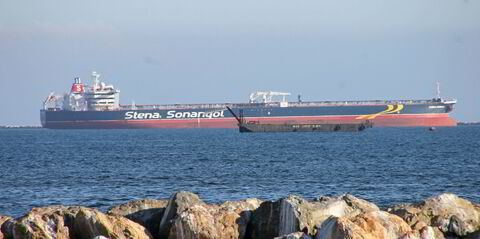Charterers of all stripes no doubt love the fact that rates across a broad array of commercial ships lay at multi-year lows. But those charterers could be setting themselves up for a fall as rates fail to cover operating expenses, increasing the risk for conveying their cargoes, according to a maritime economist.
Many dry cargo and containerships are not covering their operating expenses, according to Arlie Sterling, president or risk consultancy Marsoft. Driving rates below levels where owners can cover their costs potentially forces more stinting on everything from maintenance to crewing.
During a presentation to the Miami meeting of the Association of Ship Brokers and Agents, Sterling showed Marsoft’s index of earnings for ship portfolio comprised of a panamax bulker, aframax tanker and a containership. The index remains stubbornly stuck at around $10,000 per day, an eight-year low.
Sterling said the index remains as high as it does thanks to tankers earnings being relatively high for much of 2016. But the multi-year weakness in the dry cargo and container businesses suggests much, if not all, of this fleet is not covering its operating expenses.
“I don’t think there’s any bulker or containership out there that is earning its opex,” Sterling said. “The numbers I look at, the projects we look at, they just don’t bear it out. I think two-thirds of this fleet has been earning below opex for the last three years.”
“It has consequences for all of us who think these ships are going to be able to trade routinely and reliably going forward or that owners aren’t banking huge liabilities going forward.”
Sterling made the point in the context of increasing counter-party risk in shipping particularly in the light of the Hanjin Shipping debacle. In that instance, seemingly sophisticated international companies, such as Samsung and LG Electronics, entrusted $14bn in cargo to a nearly bankrupt container line with the vague promise of government backing.
Sterling says that same fate could befall any number of cargoes out on the water currently.
Speaking of the three legs involved in any charter, “the ships are worth scrap. The owners have no balance sheet, and the charterers are going to walk away. It’s only beginning to feel the full consequences of charters pulling back.”


